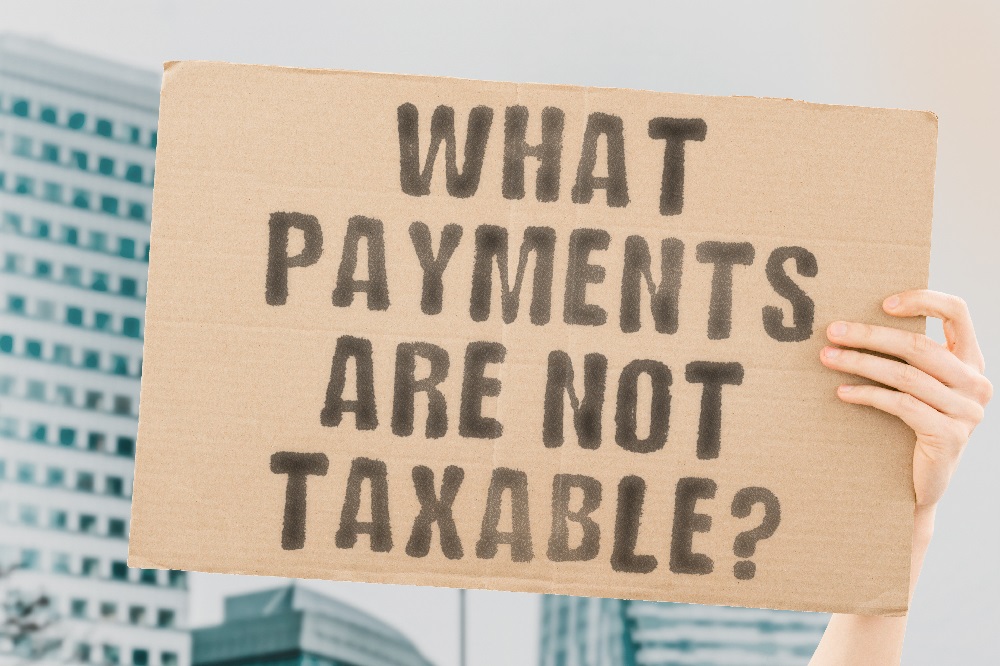For the most part, personal injury settlements are not taxable. However, there are some limited circumstances where there can be tax implications based on the specific details of your settlement.
Understanding the tax implications of settlement offer should be taken into account up front. If part of your settlement unexpectedly goes to state or federal taxes, you could wind up with out-of-pocket expenses. Our attorneys can help you review a settlement offer and advise you on the potential for tax consequences.
Compensation Related to Physical Injuries Are Not Taxable
The primary rule regarding taxation of personal injury settlements is that any compensation stemming from a physical injury is not considered income. This is true for both state and federal income taxes. The way you came into this compensation makes no difference: neither settlement funds or trial verdicts are subject to taxation if they result from a physical injury. This is important, since the vast majority of personal injury claims result directly from a physical injury.
The forms of compensation that are not considered income go well beyond medical expenses. Any form of compensation that is derived from the physical injury is not considered income. This includes compensation for your lost wages, pain and suffering, and even your attorney fees.
Ultimately, the government’s view is that these funds are not intended to enrich you. Instead, settlement funds for a personal injury claim are designed to make you whole again following a loss. If the government taxed these settlements, it would prevent you from being completely compensated for your injuries.
Understanding Physical Injuries
There is a difference between physical injuries and emotional injuries that result in physical symptoms. This distinction is important, given that compensation for non-physical injuries is taxable in some cases.
For example, consider claims based on emotional distress. If an emotional distress claim stems from a physical injury, the settlement is not taxable. However, an emotional distress claim that results from some other issue outside of a physical injury could be taxable. This is the case even if the emotional distress results in physical symptoms like nausea or migraines.
Exceptions to the Rule of Taxation in HI and the U.S.
There are some important exceptions to the general rule that personal injury settlements are not taxable. While these exceptions might not play a role in most injury settlements, it is helpful to understand them prior to negotiating with an insurance company. Some of these exceptions include:
- Prior Tax Deductions. One of the most common ways a settlement might be taxable occurs when a person receives a settlement after previously deducting injury-related medical bills in a prior year. If you take these medical expenses as a tax deduction and eventually recover compensation for those expenses, the part of your award that covers those medical bills could be taxable. This is to prevent you from getting the double benefit of a deduction as well as full compensation for your medical bills.
- Punitive Damages. Most of the damages resulting from a personal injury claim are compensatory in nature. These damages compensate you for your injuries in an effort to make you financially whole. Punitive damages are designed not to compensate you for your injuries but punish the defendant for egregious behavior. This type of compensation is taxable.
- Breach of Contract Damages. In some cases, a personal injury lawsuit could also result in a breach of contract claim. Compensation for breach of contract claims are taxable under state and federal law.
- Interest on a personal injury judgment is also taxable on both the state and federal level. When you secure a verdict at trial, you are typically granted interest on your judgment if the defendant does not immediately pay what is owed. The idea behind this interest is to ensure the defendant does not benefit from not paying what they owe. Without granting interest on an unpaid judgment, the defendant essentially benefits from not paying the debt. That said, the government taxes any interest that accrues on a personal injury judgment.
It is not always easy to determine when these exceptions might apply to your personal injury case. An attorney from our firm can advise you on whether your personal injury settlement is taxable.
Ask a Personal Injury Attorney in Which Personal Injury Settlements Are Taxable in HI
When it comes to taxing personal injury settlements, there are a few important general rules to remember. If your compensation stems from a physical injury, you can rest assured you will not owe either state or federal income taxes on that award.
There are situations that could result in tax consequences following a personal injury settlement. These examples include paying taxes after previously deducting medical bills from your income taxes or for any punitive damages you recovered. To discuss whether your personal injury settlements are taxable, contact Olson & Sons today to schedule a free case evaluation.

